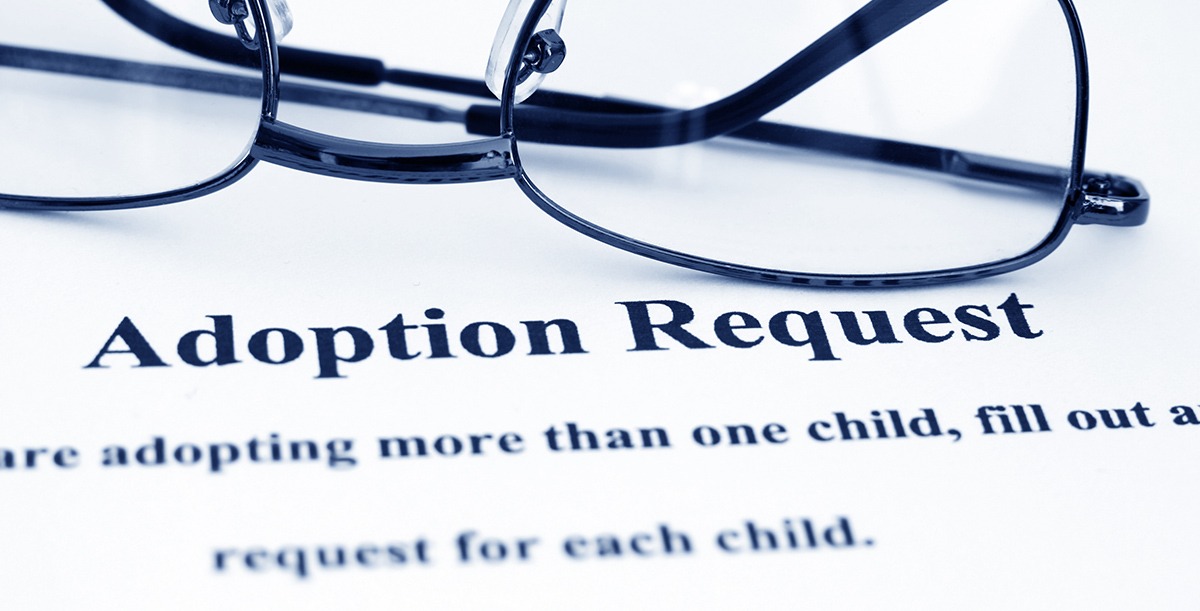Child custody can be an exceedingly difficult issue to understand. Often, due to the most unfortunate circumstances, a third party may need to seek intervention from the courts regarding custody, visitation, or placement in a home. In some situations, these children are not biologically related to the people they are being placed with. While the person seeking this decision is often a relative of one of the biological parents of the child, a close family friend, or even an ex-stepparent of the child, this can still put a great deal of strain on all parties involved.
Most frequently, Arizona’s third-party adoption or visitation rights are proposed because the biological parent or parents cannot care for the child but may have refused to allow family or loved ones any kind of visitation with the child or children. In this case, the Arizona family court must get involved in determining what is in the best interest of the child and make an official custody ruling and adoption decree.
Third-Party Adoption Rights in Arizona Explained
A third-party adoption happens when the seeking party isn’t a biological parent of the child or children but is instead a relative or close family friend. Third party adoptions stand in contrast to foster-to-adopt or general adoption situations, where the child is adopted by an unfamiliar non-relative. This can happen when either of the parents does not want to maintain custody or is deemed incapable of caring for the child or children.
These two situations tend to occur because of very unfortunate circumstances. Sometimes, parents choose to relinquish their rights, but other times, more aggressive legal action is taken when the parents are determined to remain unfit to care for the child or children.
Reasons this can happen include:
- Abandonment or desertion
- Abuse or extreme neglect
- Ongoing substance abuse
- Inability to provide for the child or children
These situations can be incredibly dangerous and damaging for the minors involved. Often, the child or children remaining with a family member or friend is a preferred solution to minimize the negative impact on the children. When relatives are capable of petitioning for adoption, the Arizona family court must decide what is in the best interest of the child or children involved.
What Is Considered the Best Interest of the Child?

Determining the best interests of the child and arranging custody and adoption in accordance with that determination is the primary concern of family courts. As such, it is the determining factor in adoption, custody, and visitation hearings. When it comes to the best interests of the child, the court prioritizes the welfare and safety of the child or children, specifically “all factors that are relevant to the child’s physical and emotional well-being.”
Some of the factors the court considers regarding the child’s best interests include:
- Any potential relationship that the child may have with the petitioning adult
- Any relationships or interactions with siblings or other family members that may affect the child after the adoption
- The child’s current school, home, or community attachments (in the event they need to be relocated)
- Whether the child is of a reasonable age or maturity level to help in the decision-making process
- The physical and mental health of all individuals involved
- Any history of substance use, abuse, or neglect
These are all crucial factors in determining who can be granted third-party visitation, custody, or adoption. It is worth noting that often, parents do not wish to terminate their rights, and it is difficult to award custody or adoption rights to a third party. For this reason, most third-party cases in Arizona involve visitation rights only.
Important Factors for Third-Party Custody in AZ
In addition to the child’s best interests, these factors are considered when a third-party petitions for custody of a child or children.
- Whether a third party has been acting in loco parentis for the child
- Whether allowing the child to remain in the care of either parent would be extremely detrimental to their well-being
- A legal decision was not made within one year prior to the current filing by the petitioner
- Whether one of the child’s parents is deceased, the parents are unmarried, or divorce filings are pending
What Is in Loco Parentis?
In loco parentis is a Latin term that means “in place of a parent.” In the legal world, it refers specifically to a non-parent who takes on the typical roles and responsibilities of a parent.
Indicators an in loco parentis situation exists include whether:
- The child has treated that person like a parent.
- The person has a strong, meaningful relationship with the child.
- That relationship has been established for a considerable length of time.
An individual acting in loco parentis could be a grandparent, aunt, uncle, stepparent, sibling, or another third party who has stood in as a parent to the child for an extended period. In loco parentis situations frequently happen in Arizona. The courts often hear cases where a party has been acting as a parent for a child, especially with blended families.
The Arizona Third-Party Adoption Process

The adoption process can be complex, even for a close friend or family member. It’s also important to recognize that third-party adoption and third-party visitation are quite different things. Visitation allows a third party to have visitation rights with a child they have a documented close relationship with—this typically applies to family members who had previously been kept from seeing the child by one or both parents. However, the parents retain parenting time and legal decision-making authority.
By contrast, a third-party adoption gives all parenting time and legal decision-making authority to someone other than the biological parents of the child. The person will then act in the interest of the child concerning medical care, schooling, religion, and other legal matters. They also take responsibility for the child’s life and must provide care for the child. This is a permanent decision that does not expire.
Third-party adoption takes place in a series of steps.
Placement with the Petitioner
Gaining legal custody or demonstrating dependence of the child is the first step in pursuing a third-party adoption in Arizona. This can be difficult, as it must be proven that the third party stands in loco parentis of the child. The third party must also show proof of the inability of the parents to care for the child and that the child may be being neglected or otherwise harmed. The petitioner and everyone in the petitioner’s home must also complete fingerprinting, submit to a federal criminal history record search, and submit to a DCS record search.
If the above-listed conditions for third-party child custody are met, the child or children can reside with the petitioner. The petitioner is then responsible for parenting and legal decision-making for that child or children. After six months, the petitioner can then petition for third-party adoption.
During this stage, petitioners must submit the following:
- Adoptive Placement Agreement
- Application for Adoption
- DHS Certificate of Adoption, first two portions
Filing Final Petition Documents
For the Arizona family court to finalize the adoption, the petitioner must submit the following documents:
- Social Study Report (at least ten days prior to the final hearing)
- Communication Document
- Current federal criminal history record or fingerprinting document
- DCS registry records check document (results reviewed within 24 hours of the hearing)
- Original Consent of Department to Adoption
- Petition to Adopt
- DHS Certificate of Adoption in full
Filing a petition for adoption with the courts is the next step necessary for adopting the child, but this must occur after the required six months. However, expedited adoption is possible if the child, the parent, or the petitioner have a debilitating or terminal illness; if the child is 16, free for adoption, and consents to the adoption; or if the court finds that there are other special circumstances.
The petitioner must also show notice of any proceedings and a copy of the petition to the following parties:
- The legal parents of the child
- The guardian or guardian ad litem(“GAL”) of the child
- Any third party with decision-making authority for the child
- Any agency or person who retains the child’s physical custody
- Any person who has claims to decision-making authority for the child
- Any other party who has appeared previously in any actions for the child
If the parents don’t object to any filings, custody rights go much more swiftly. If they do, parental rights must be terminated for the proceedings to continue. Additionally, the court cannot have made a ruling within the past year regarding legal decision-making for the child. Because Arizona doesn’t allow for shared custody between legal parents and third parties, all the requirements to terminate the parental rights must be met before proceeding.
Court Hearing and Finalization
After the Petition to Adopt has been filed, the court will provide written notification of a hearing date. Testimony regarding the biological parents’ fitness to parent (if the parents are contesting the removal of their rights), as well as the fitness of the petitioner, will be heard by the court. Information regarding the child’s best interests and why remaining with the petitioner is in the child’s best interests will be used to make the final decision. If the adoption is approved, the Order of Adoption will be submitted with the date of finalization.
Arizona Third-Party Adoption Rights: FAQs
If you have been considering establishing 3rd party adoption rights in AZ, these frequently asked questions can help you get started with the process.

Q: Do Stepparents Have Any Custody Rights?
While a stepparent may have been acting as a parent during the full course of a marriage, they, unfortunately, retain no legal rights to a child unless they have completed legal adoption for the child. This, however, doesn’t mean that visitation rights wouldn’t be in the best interest of the child in the event of a divorce. The same could be said for third-party adoption. If a stepparent feels that they can prove the inability of the legal parent to care for the child, then they may begin the adoption process to terminate the legal parent’s rights and gain legal decision-making authority for the child.
Q: Do Grandparents Have Custody Rights in AZ?
A: Under appropriate circumstances, grandparents and even great-grandparents have visitation as well as custody rights. Grandparents must apply for third-party visitation or custody by understanding AZ family court facts.
Q: How Do I Get Custody of My Niece in Arizona?
A: The first step is to understand all the criteria that must be met to initiate a third-party adoption and apply for placement. Submitting background check requirements, filing a Petition to Adopt with the courts, and submitting a petition fee is the next major step. Finally, the court will conduct an adoption hearing to determine whether the adoption is in the best interests of the child and potentially finalize the Adoption Decree.
Q: What Are the Requirements for Adopting a Child in Arizona?
A: One of the basic requirements for adoption in Arizona is that the petitioner must be at least 18 years of age. The petitioner, as well as any other adults in the household, must also be able to pass a local criminal background check as well as a federal background check and DCS search. As always, the adoption must be determined to be in the best interests of the child.
Q: How Do I Know If I’m Eligible to Adopt a Child in Arizona?
A: To be eligible to adopt a child in Arizona, you must:
- Meet the minimum age requirement of 18
- Own or rent an apartment or home
- Be able to pass local and federal criminal background checks
- Pass a DCS records search
- Own a Level 1 Fingerprint Clearance Card that has been issued by the Department of Public Safety in Arizona
Q: What Are the Rights of the Birth Parents in Arizona?
A: While both parents must consent to place a child in someone else’s care, that doesn’t necessarily terminate any contact they may have with the child in the future. Different types of adoptions allow varying levels of contact between biological parents and children, and you can decide the level of contact you are comfortable with. Additionally, for a third-party adoption to take place, parental rights must first be terminated before a new custody arrangement can be awarded or established. Parental rights are protected under the 14th Amendment, and the courts take this very seriously.
Q: How Much Does It Cost to Adopt a Child in Arizona?
A: The final amount it costs to adopt a child in Arizona depends on several factors. First, it depends on whether a party goes through an agency. You’ll likely have to pay agency fees that are determined by the agency itself. If parental rights must first be terminated, lawyer fees and court costs apply. Other expenses, such as travel costs and living expenses, are often a factor as well, so costs to adopt may be as high as $50,000.
Q: What Are the Resources Available to Adoptive Families in Arizona?
A: There are a variety of resources available to adoptive families in Arizona. Various governmental agencies can assist adoptive families, as well as religious resources, advocacy and information resources, and support groups. Depending on the location of the family, additional region-specific resources may be available.
Legal Documents for Third-Party Adoption Rights in AZ
A third-party adoption, like any adoption, is a decision the Arizona court never takes lightly. As a result, the court considers a variety of critical factors before impacting a child and family’s lives forever. For that reason, before proceeding with a third-party adoption, consider any requirements to make sure it is the best option possible for the child.
If you are considering establishing 3rd party adoption rights in AZ or need more information about how to proceed with a case, Draft My Legal Docs is here to help you ensure you have all the necessary documentation for an AZ legal case. Whether it’s offering guidance, providing facts and figures, or giving advice on necessary paperwork, we can find the answers. We assist with proper procedures that allow you to not just narrowly drift pass legal obstacles but absolutely thrive during the legal process.

Jonathan Roeder is one of the founding partners of The Valley Law Group. He is an Arizona native who has dedicated his life and career to the service of others. After graduating salutatorian of his high school class, Jonathan attended beautiful and prestigious Pepperdine University, where he majored in Political Science. During his tenure at Pepperdine University, his passion for helping others grew after securing a clinical position with a residential treatment center for juveniles with substance addictions. Post-graduation, Jonathan returned to Arizona and served as a residential manager for mentally and physically disabled homes.





